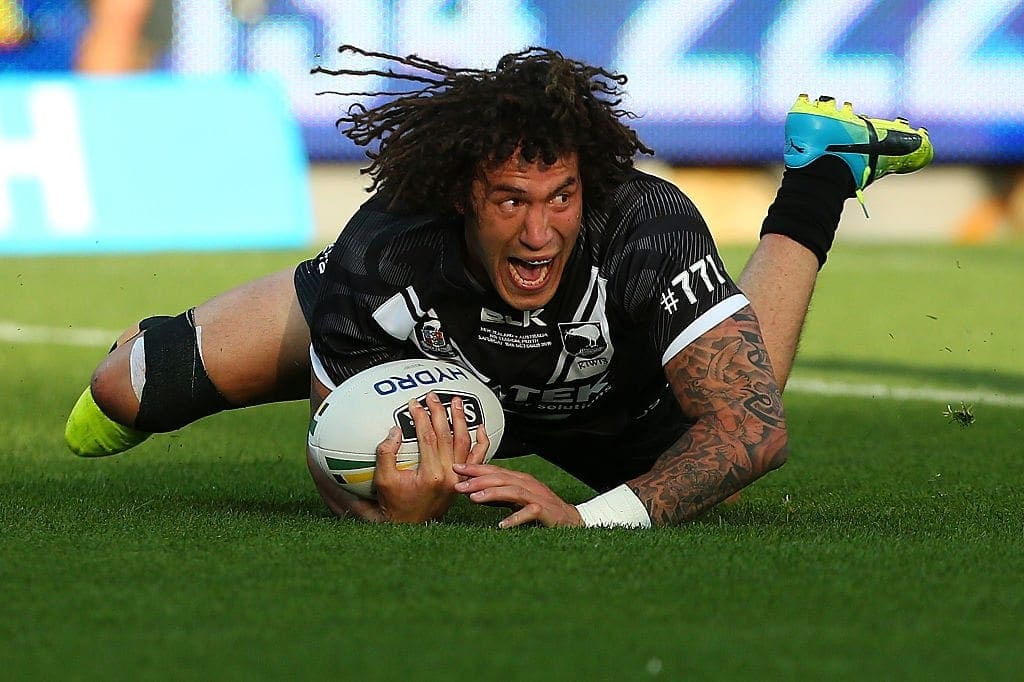
Former Kiwi Test star Kevin Proctor has been left unconscious and hospitalized following a brutal hit during a viral collision challenge in Dubai. This incident has once again highlighted the safety issues surrounding RUNIT, a controversial tackle-based event format marketed as the “world’s fiercest new collision sport.”
The former Storm and Titans forward was knocked out cold after charging into social media personality and ex-lower-grade footy player Jordan Simi during a high-profile bout at RUNIT 02. The collision left Proctor sprawled on the turf with his limbs rigid, immediately prompting serious concern from onlookers and requiring urgent medical attention.
The Rise and Risks of RUNIT
RUNIT is a rapidly growing competition founded on a Neanderthal-level concept. Two competitors run directly at each other in a full-contact collision, with up to four hits per match and prize money climbing as high as $200,000. What began as a social media spectacle is now a global traveling circus, with stops across Melbourne, Auckland, the US, Saudi Arabia, and England.
However, with its rise in popularity has come a wave of backlash, amplified in the wake of Proctor’s chilling knockout and the recent death of 19-year-old Ryan Satterthwaite in New Zealand during a similar challenge. The RUNIT brand describes itself as “born to go viral” and “taken social media by storm with tens of millions of views.”
RUNIT’s Instagram boasts more than 180,000 followers, and the league’s branding leans heavily on aggression and bravado.
Expert Opinions and Safety Concerns
Behind the highlight reels lies a troubling record of head knocks and mounting calls for regulation. According to leading neuroscientist Professor Alan Pearce, the sport presents a perfect storm for second impact syndrome, a condition where repeated head trauma occurs before the brain has healed from a prior injury.
“The concern is around second impact syndrome,” Pearce warned, speaking with Guardian Australia. “If a younger person has an injury but doesn’t understand they’ve got a concussion and then a second later they get a second impact, that’s catastrophic.”
RUNIT insists participants are “selected and screened” by an “athlete manager” and that all competitors undergo medical testing and coaching before taking the field. A recent statement declared, “Safety is paramount. We are committed to the health, safety, and well-being of every athlete who represents our brand.”
Regulatory Measures and Future Implications
Despite these assurances, the imagery of a decorated 283-game NRL veteran lying unconscious from a straight-up tackle has sparked widespread unease. Proctor’s own fall from grace has been well documented as he was sacked by the Titans in 2022 for vaping during halftime, but this incident has thrust him back into the headlines in a context far removed from traditional rugby league.
Competing promotion “Run It Straight 24” has reportedly adopted new safety measures, including head and mouth guards and on-site paramedics, in an effort to blunt growing criticism. But for critics like Pearce, the risks remain unacceptably high.
The announcement comes as the debate over the safety of collision sports intensifies. As RUNIT continues to expand globally, the pressure mounts for stricter regulations to prevent further incidents. The future of such sports may well depend on the balance between maintaining the thrill and ensuring the safety of its participants.






